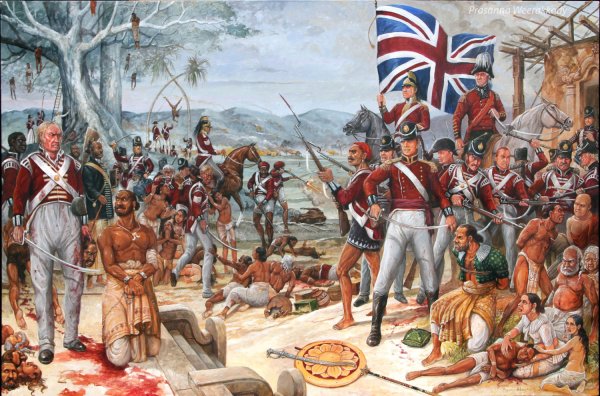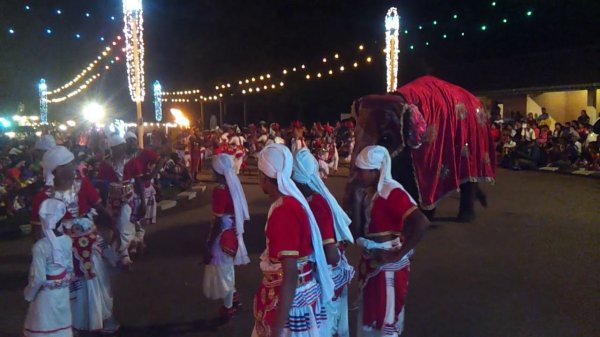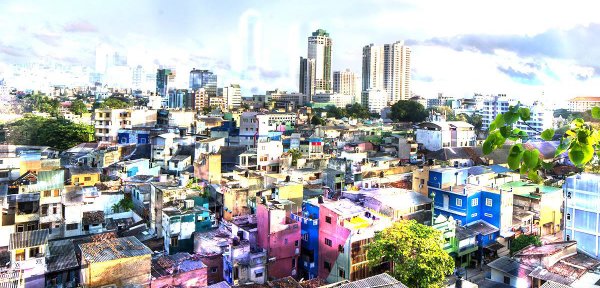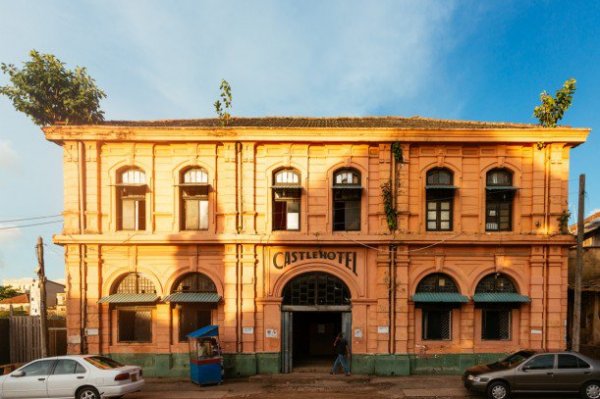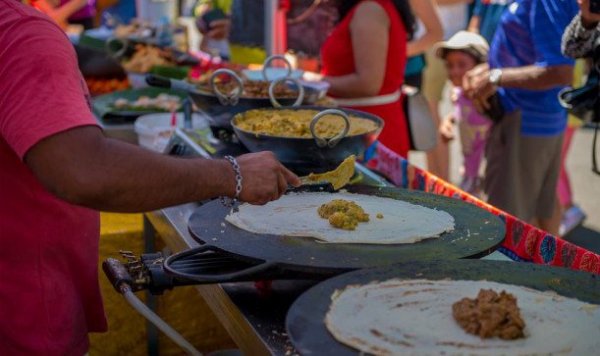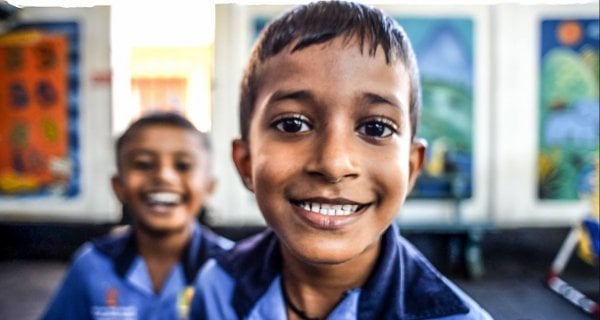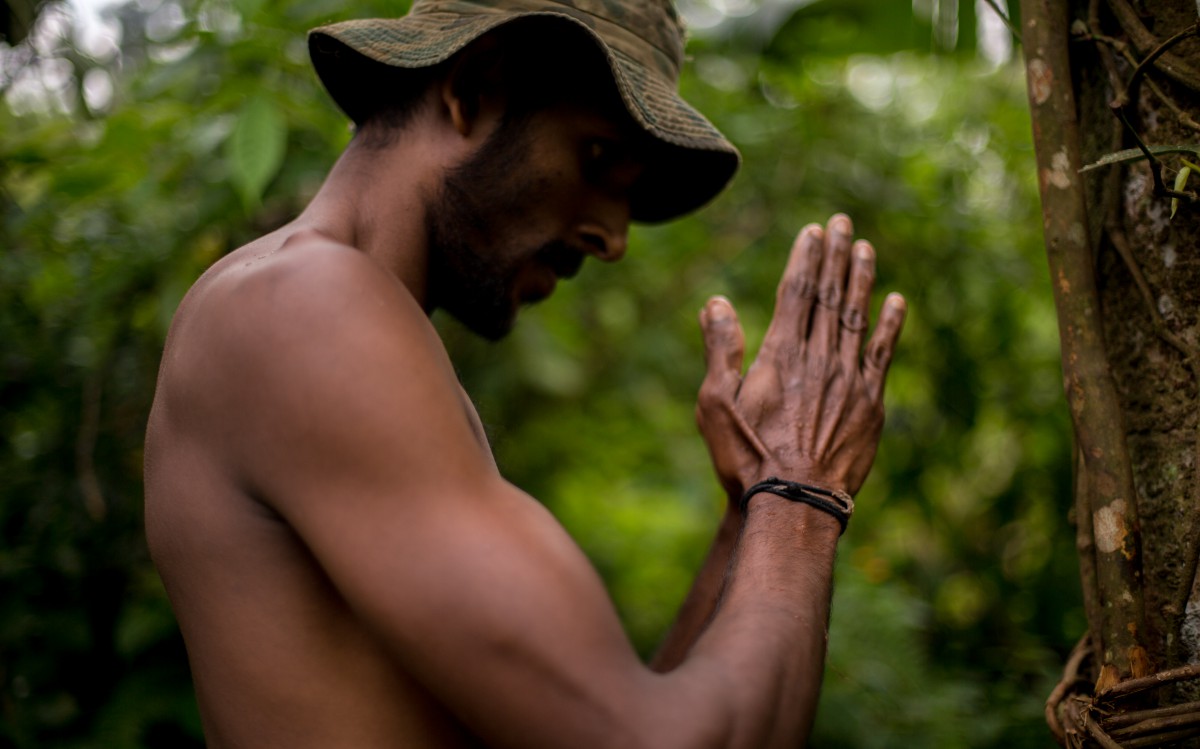
Photos by Dilina Janadith
Around the buffer zone of the evergreen Sinharaja Rainforest Reserve, there are approximately 25 villages where toddy-tapping is practiced. Toddy—a wine-like, low-percentage alcohol—is made from the extract of the flower of the “fish-tail tree” (caryota urens), by a tapping technique passed down through generations. When boiled at high heat, the sap transforms into kithul, a honey-like syrup renowned for its medicinal properties and cherished throughout Sri Lanka as a sweetener.
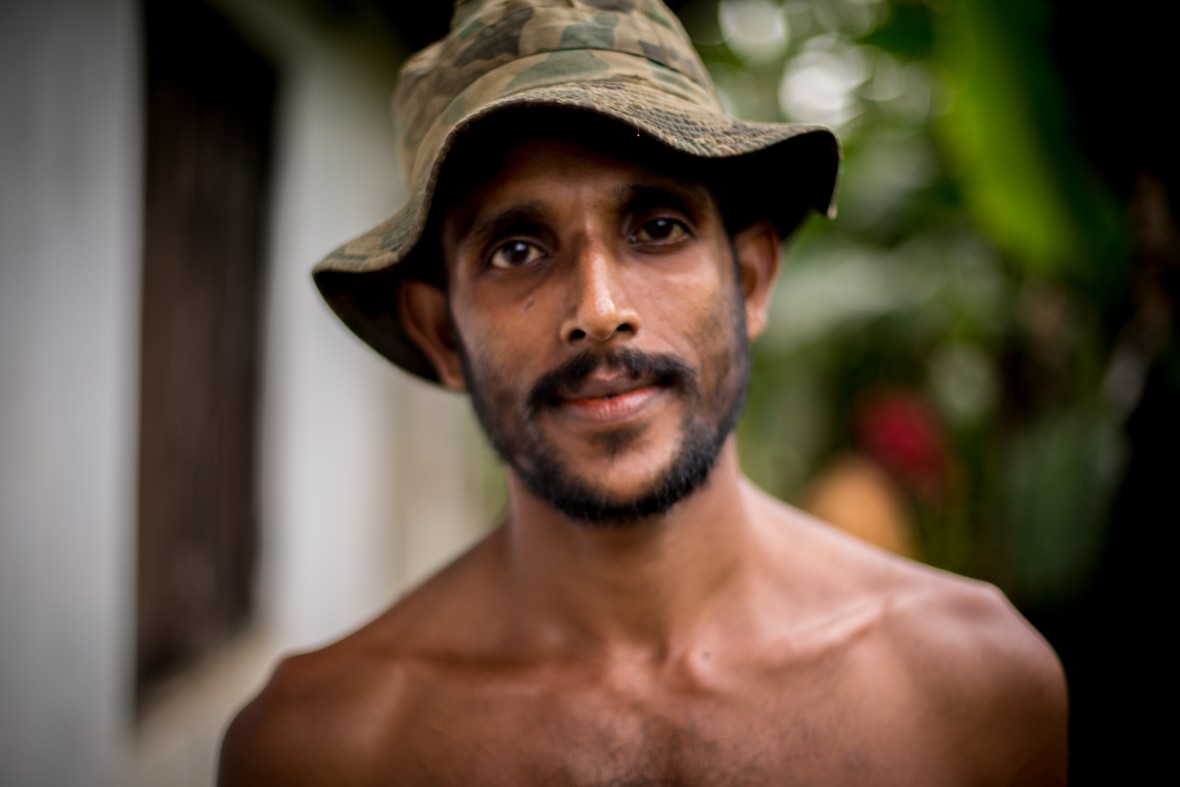
Anjana only started tapping for toddy four years ago. He said: “I’m a pretty quick learner. I catch onto things really easily; it wasn’t hard… This isn’t like a regular job since it’s only in the morning and evenings. But I don’t stay home during the rest of the day. I have another, more regular job.”
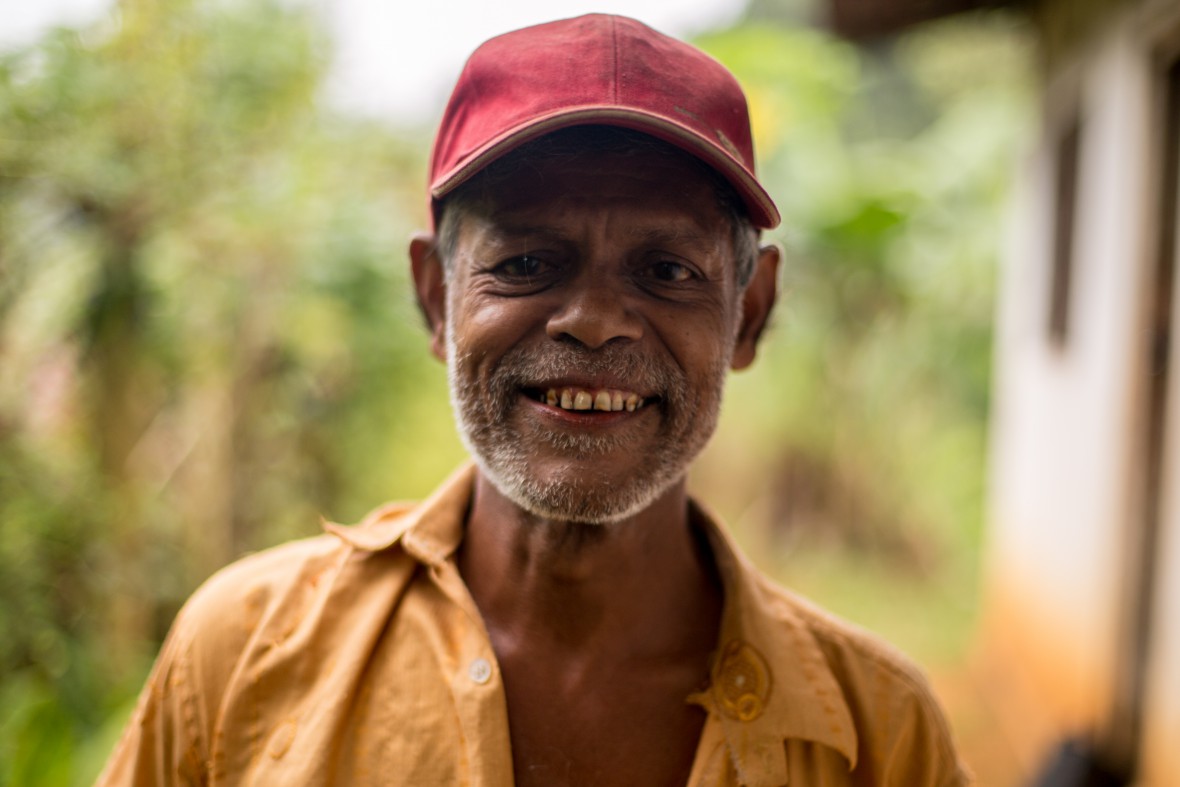
“Uncle is my teacher and mentor”, said Anjana. “At the beginning, when I was around 27, he showed me a really tall tree and told me to scale and cut it”.
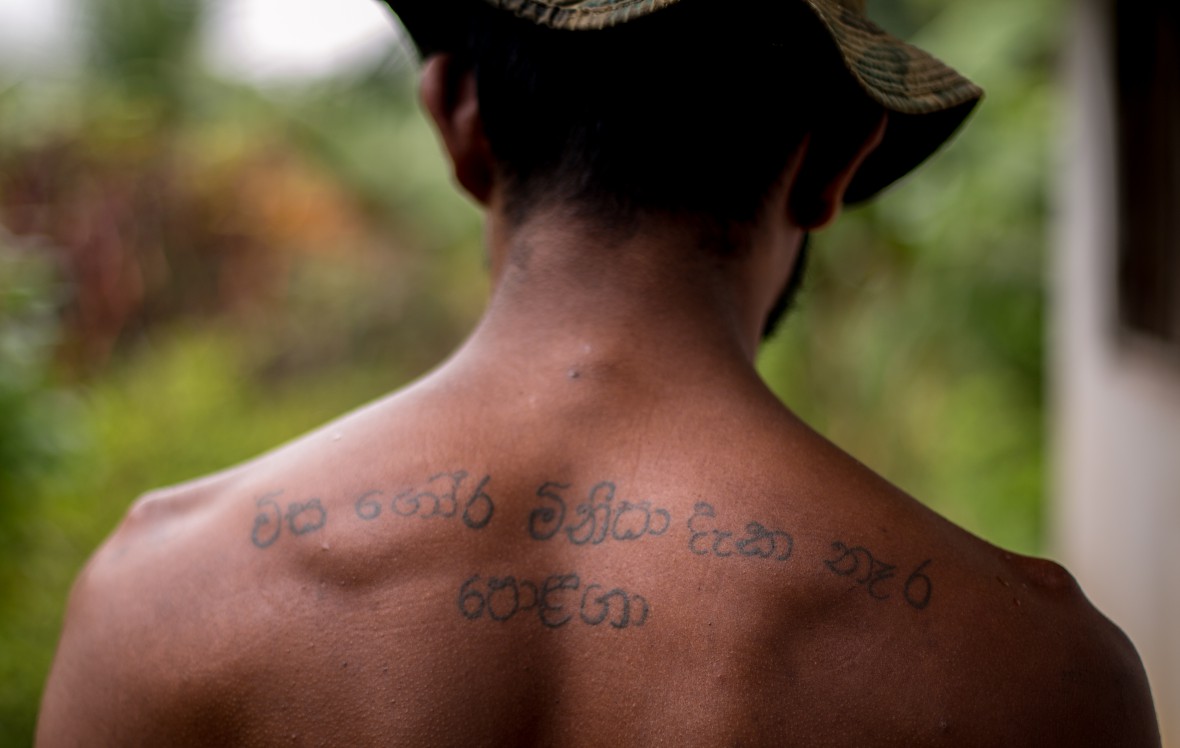
Anjana’s tattoo is a play on words from one of the comic books he read in his teenage years [he couldn’t remember which one]. The original quote from the hero in the comic said, wisha goara sarpaya deka naera modaya, translating as “Fool, don’t let the venomous serpent go free after you’ve seen it”. Anjana has adapted the quote to read wisha goar minisa daeka naera polanga, meaning “Viper, don’t let the venomous human go free after you’ve seen him.”
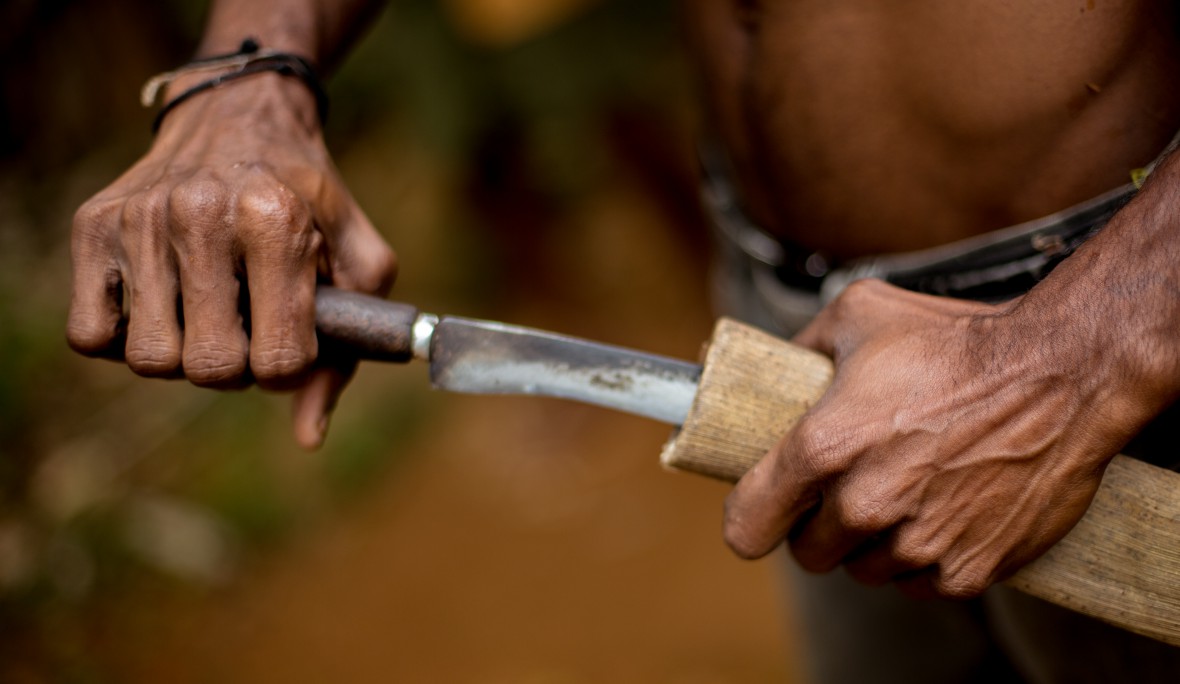
The blade is so important to the toddy climber’s work but Anjana said, “this one is worn out now”.
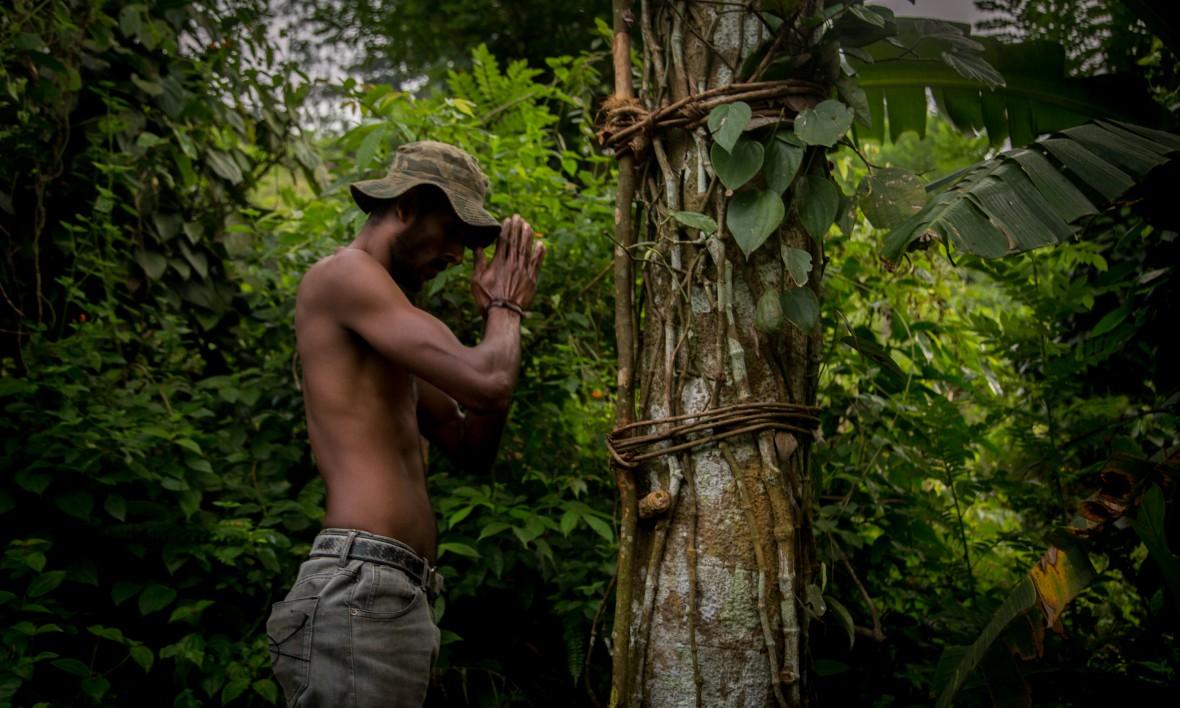
Before every ascent and after each descent, the climber says a short prayer worshipping the tree and its goodness.
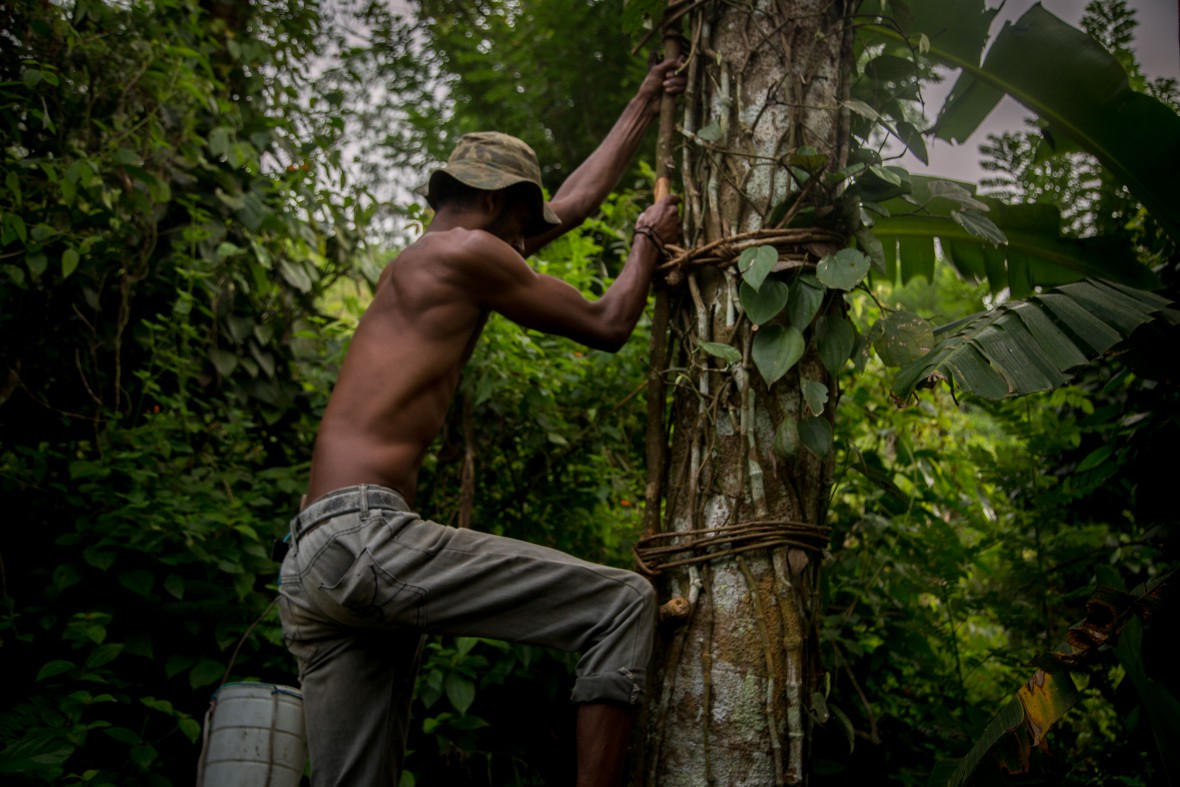
“I have about three or four trees at the moment, but only this tree has enough flowers [to bear toddy]”. Anjana also explained that his trees are on his family’s land and they have to claim ownership of them at the nearby Sinharaja administrative office at a charge of 50 rupees per tree. The tree is then marked out by carving a unique number on it.
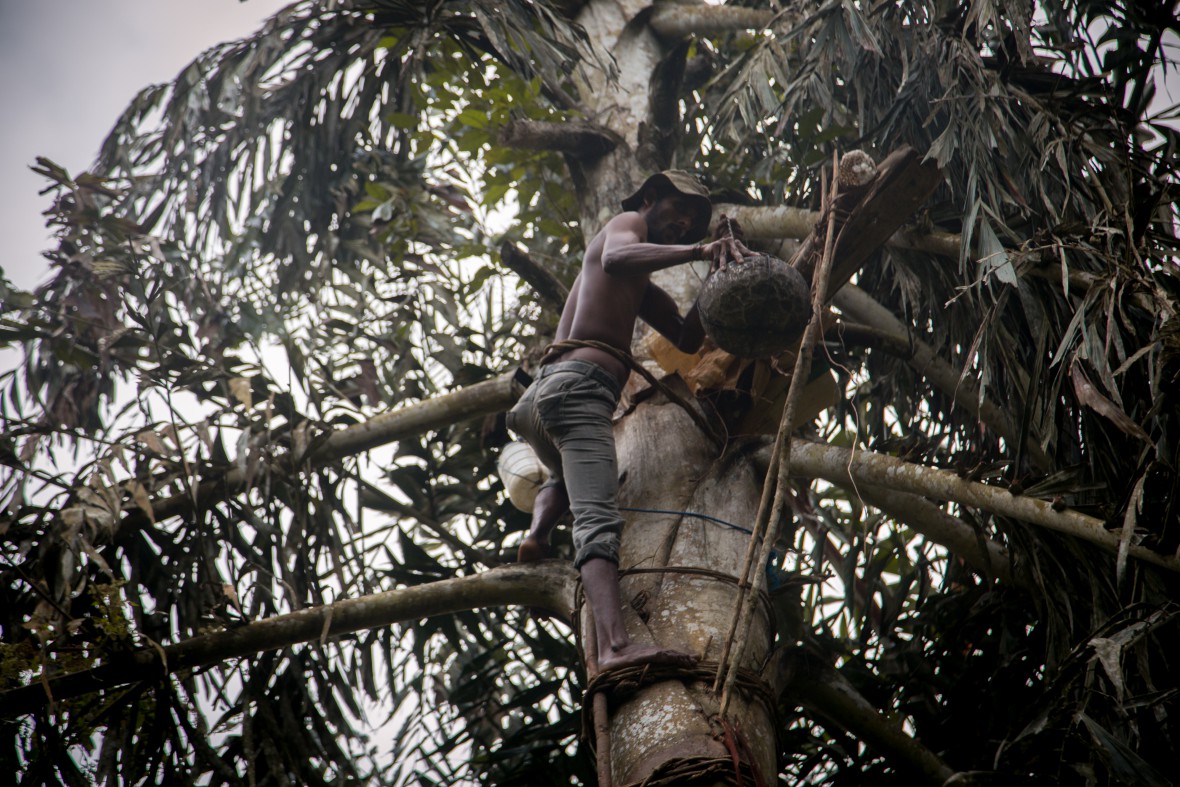
“Tapping is difficult during the rains, and there are good days and bad days for the harvest”, said Anjana.
“Our way is the best, it’s natural. [To doctor the flower] We use leaves, chalk, and limes which are ground/pounded together. A few more ingredients are added, and then a dash of coconut oil. The paste is then taken and placed at the root of the flower, so the flower gets ‘boiled’ and the result is better compared to the tablets issued by the government.”
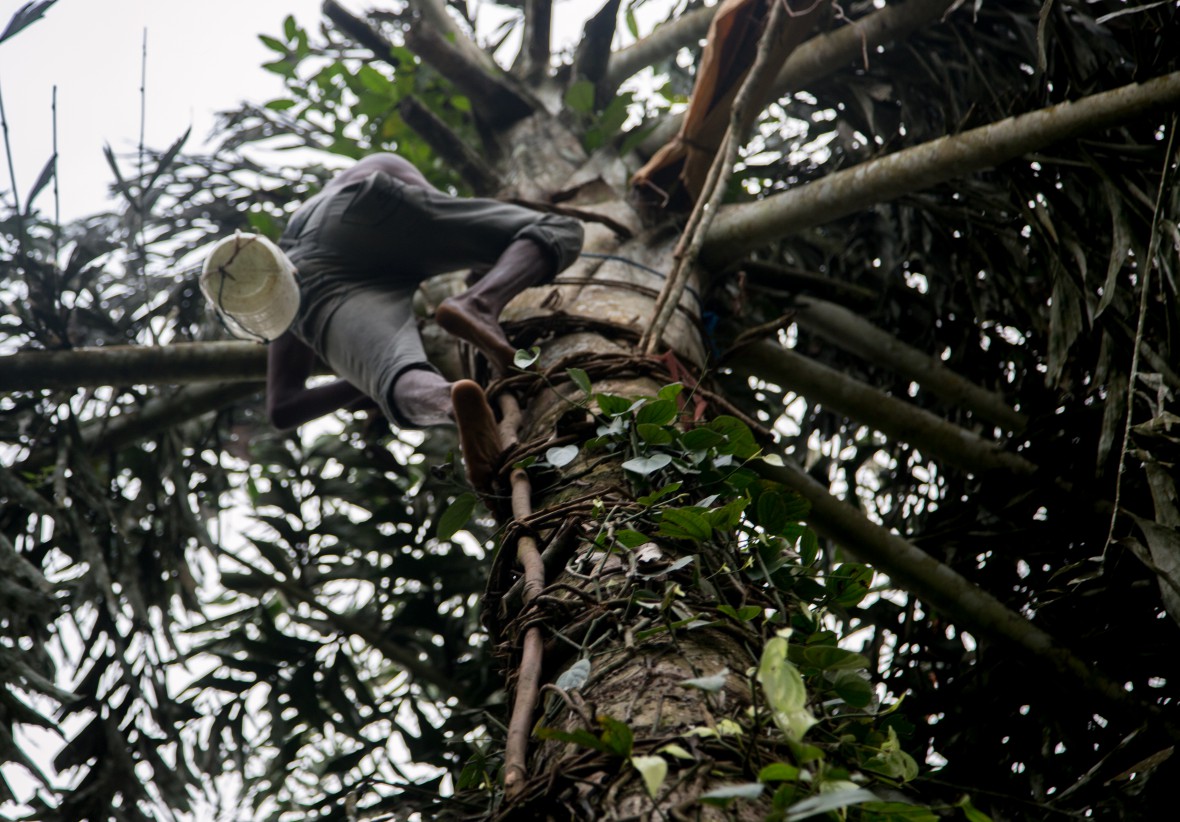
“I’ll be bringing it [the pot] down in about two or three days. The pot of toddy will have fermented enough to make treacle then.”
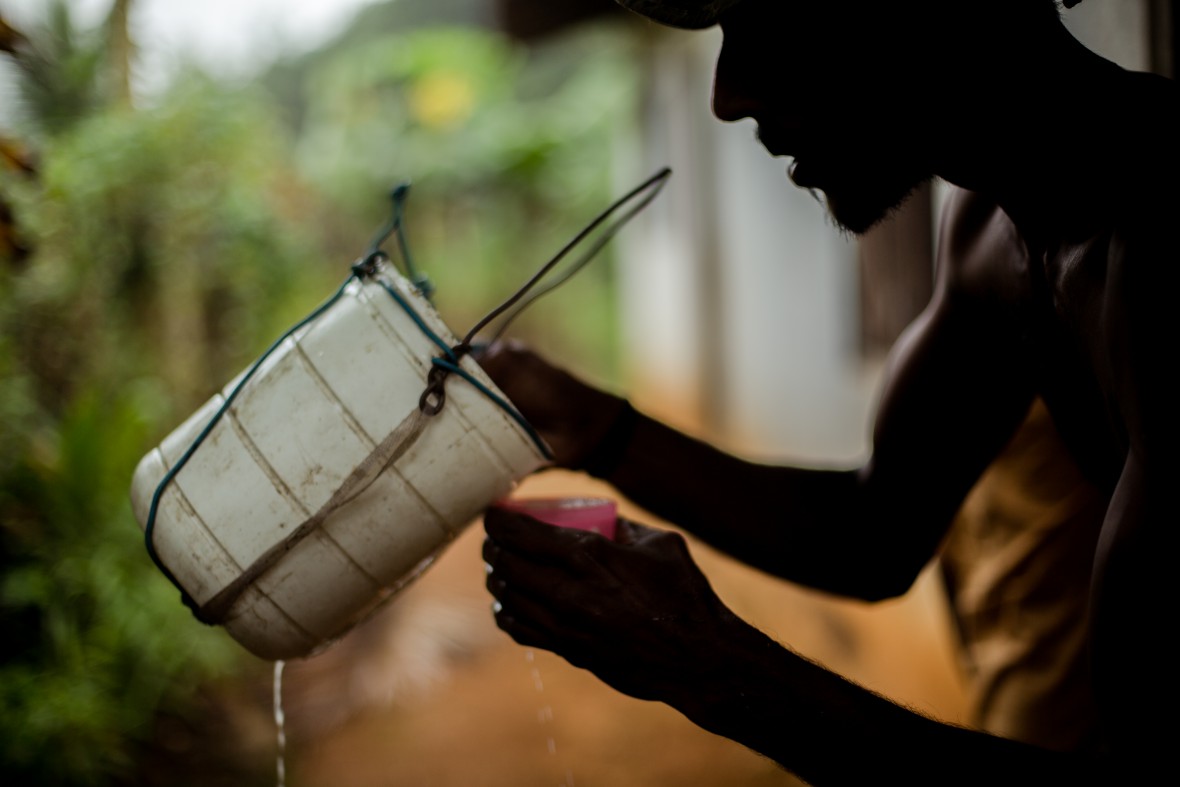
“[To make kithul] you heat the liquid for a while and keep stirring. When it begins to solidify, like dodol, you keep stirring. The froth rises, so you remove that. Then you end up with the honey [kithul], and [you have to] keep stirring. It solidifies to a certain point after that, and then you end up with jaggery.
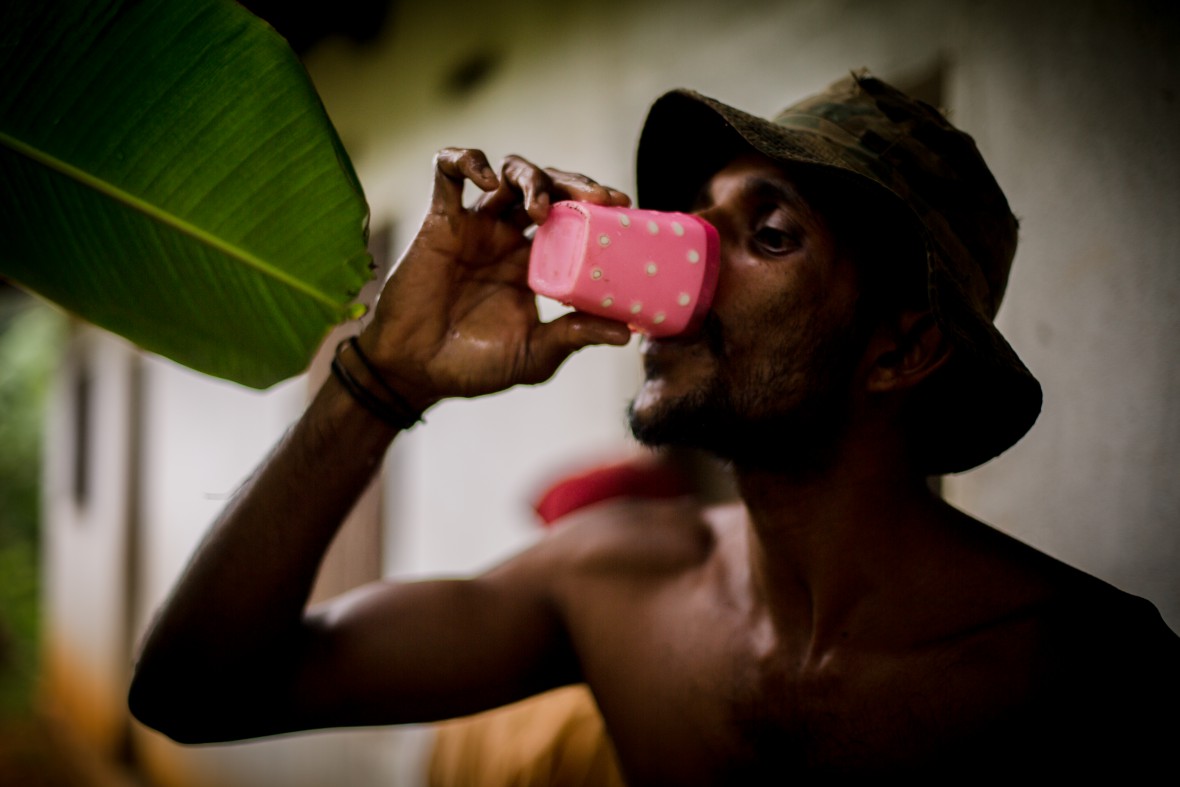
“Basically, you can’t sell toddy, it’s illegal… When the liquid is frothy, the police know it’s toddy… [but] toddy is beneficial for flu in the morning. It’s also good for when you feel faint.”
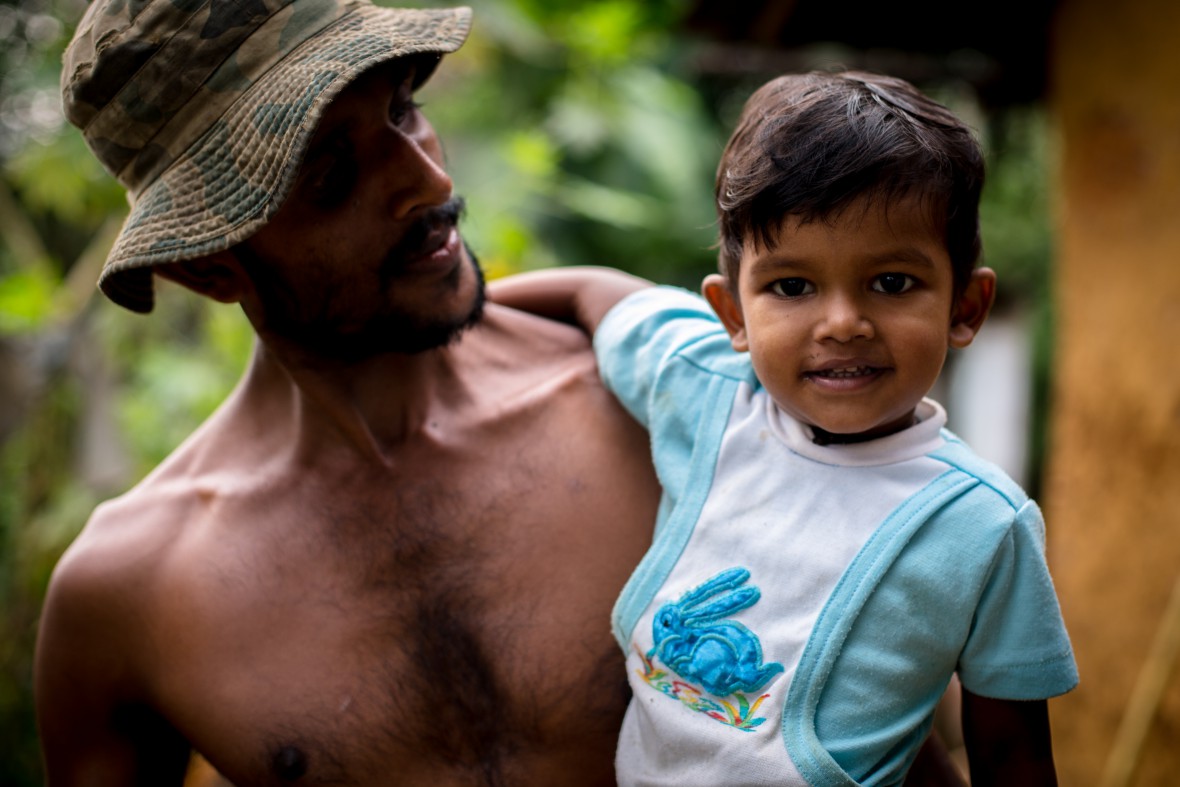
Anjana is originally from the city of Ratnapura, but moved to the remote village when he married his wife who is local to the area. He gave up his job driving for a major telecommunications company and has started working the forest and land that he has inherited. They have two children.


